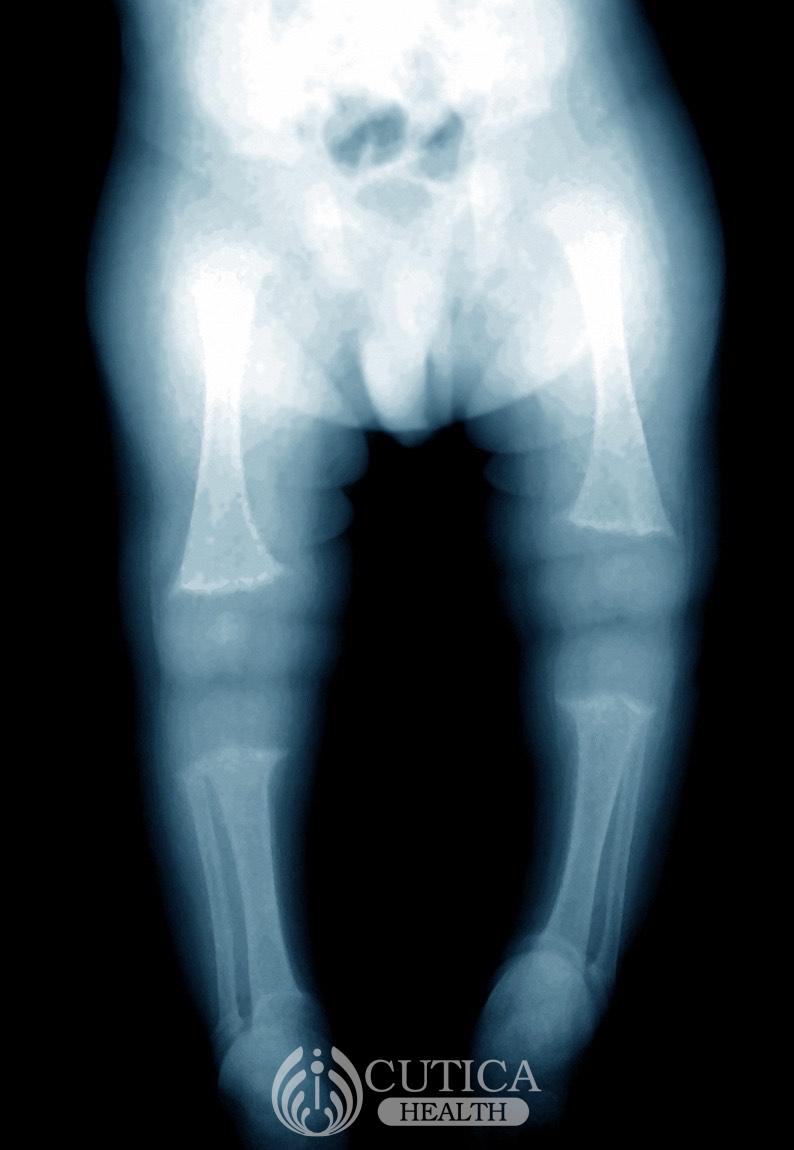
"Mummy, I'm not going to school today, my classmates call me Mr. bow-leg," “I’m so sorry Chike, this happened during a difficult phase of our lives, I will follow you to school and speak with your friends and teachers." I heard from Ngozi's mum that doctors can now treat this. We will get more information"
Things change and quickly too. Rickets (soft, deformed bone); what we now consider a stigma for poor African and deprived children, used to be called the English disease. All that has changed now; it is now the burden of Africa and its teeming populations.
Rickets can be described as softening and weakening of bone caused by a lack of vitamin D in the body, resulting in bone malformation in children. When adults suffer a similar deprivation with weak deformed bones, we call it by a different name—osteomalacia.

What causes rickets?
A lack of Vitamin D is the culprit; however, not everyone deficient in vitamin D will come down with rickets. Only a severe and prolonged deprivation of vitamin D produces rickets.
But I thought our bones need calcium? What is the role of calcium in rickets?—you may ask. Both calcium and vitamin D are important, but one depends on the other—your child’s body needs vitamin D to absorb calcium, and calcium helps to strengthen bones. So if your child’s bone lacks calcium for a long time, it becomes soft and easily deformed.
Our bodies produce vitamin D by themselves, but they require sunlight as a catalyst. Consequently, reduced sun exposure for a long time in childhood or during pregnancy may reduce vitamin D formation in your child.
If you are vitamin D deficient either during pregnancy or after birth, your baby may become vitamin D deficient too. This also could make your baby more prone to rickets. For this reason, vitamin D supplementation may be necessary under your doctor’s guidance. Aside poor sun exposure, low vitamin D supplementation in an infant’s diet could cause their bones to soften and become deformed.
Other factors aside from inadequate sun exposure and low dietary intake can cause rickets. Some of these include medications for seizure disorders and drugs for HIV. If your child is using any of these drugs, consult with your doctor for vitamin D supplements to keep their bones strong.
Babies born too early also have an increased risk of developing rickets. It is advisable to talk this over with your doctor during pregnancy.
How can I Prevent Rickets?

Despite all these, rickets is both preventable and reversible. To prevent rickets:
1. Make sure your child gets adequate and regular ten to fifteen minutes’ exposure to morning/mid-day sunshine.
2. Ensure vitamin D-rich diet for your family: give your children foods like fatty fish like mackerel; don't forget fish oil and egg yolk.
3. Read labels and take advantage of beverages like milk, instant formula, and cereals with added vitamin D.

Take-home: rickets deforms and cause severe distress for your child and your family; however, rickets is both preventable and treatable. Neither you nor your child should suffer in silence.












